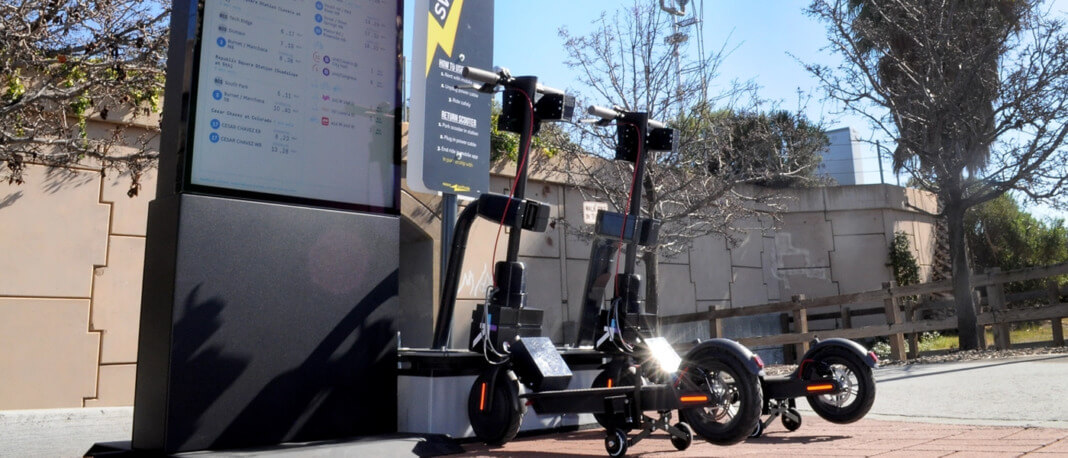- Sidewalk congestion is a significant pain point for cities, and fully charged scooters for riders are not guaranteed. Those are the two main selling points of micro-mobility docking startup Swiftmile and remote-controlled scooter repositioning startup Tortoise.
- Today, both companies announced a partnership to solve those problems.
- Swiftmile offers the ideal destination and origin for repositioning. So, riders can have the experience that dockless enables, leave the scooter wherever their destination is, and use Tortoise to drive to the nearest Swiftmile station to dock and charge.
- Swiftmile has already deployed hundreds of its charging stations across cities like Austin and Berlin. Later this month, the startup will deploy a Spin-branded dock in San Francisco.
- Swiftmile charges scooter operators by the minute, but not to exceed a certain amount, depending on the market it operates in. Initially, the docking system will be open to all the operators to show them how it works and how beneficial it can be. After a certain period, Swiftmile will only charge its customers’ scooters.
- Tortoise, launched in October, does not make any scooters. Instead, Tortoise sells its software to customers, which need to install about US$100 worth of equipment on each scooter to run its software. That includes two phone cameras, a piece of radar, a processor, and a motor. If it’s a two-wheeled vehicle, Tortoise needs the addition of robotic training wheels. All of this is included in the reference design Tortoise provides to operators.
- Given the volume of micro-mobility operators in the space today, Tortoise aims to make it easier for these companies to more strategically deploy their respective vehicles and reposition them when needed.

In brief: Startups Tortoise and Swiftmile are merging their tech to solve scooter chaos
Sidewalk congestion is a significant pain point for cities, and fully charged scooters for riders are not guaranteed. Those are the two main selling points of micro-mobility docking startup Swiftmile and remote-controlled scooter repositioning startup Tortoise. Today, both companies announced a partnership to solve those problems. Swiftmile offers the ideal destination and origin for repositioning. […]
Popular Categories




